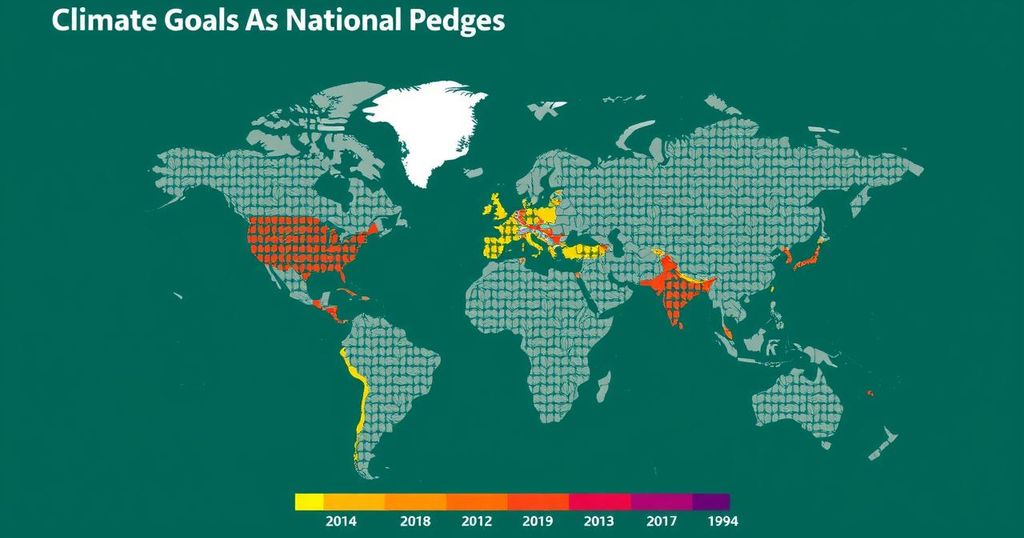UN Reveals Inadequacy of Current Global Climate Pledges
According to a recent UN report, global pledges to reduce emissions will result in only a 2.6 percent decrease by 2030, far below the 43 percent reduction needed to meet the Paris Agreement goals. Ahead of COP29, a new round of climate negotiations, there is an urgent need for nations to enhance their commitments to avoid severe climate impacts.
The United Nations has reported that the current climate pledges made by nations are inadequate, estimating a mere 2.6 percent reduction in global emissions by the year 2030, which is significantly lower than the 43 percent reduction necessary to meet the goals established in the 2015 Paris Agreement. This revelation comes ahead of the upcoming climate negotiations set to take place next month. The national pledges, referred to as nationally determined contributions (NDCs), only reflect a minimal increase from the previous year’s commitment of 2 percent. Simon Stiell, the executive secretary of the UN Framework Convention on Climate Change (UNFCCC), emphasized the urgent need for updated and more ambitious NDCs. He articulated that the current plans do not suffice to curb the impending global heating effects that threaten economies, livelihoods, and the environment universally. The COP29 climate talks will provide a platform for nations to propose more substantial pledges, including plans for a global emissions trading system and a financial commitment of $100 billion annually to support developing countries in their climate initiatives. Additionally, the World Meteorological Organization (WMO) reported a staggering increase in greenhouse gases in the atmosphere, with carbon dioxide levels now 51 percent higher than pre-industrial times and a significant rise attributed to exacerbating factors such as forest fires. This alarming data underlines the urgent call for countries to reassess their commitments towards achieving sustainable climate goals in order to mitigate the effects of climate change effectively.
The topic at hand involves the evaluation of international climate pledges aimed at curbing greenhouse gas emissions. The UNFCCC regularly assesses the progress of nations regarding their commitments to limit global warming, particularly in light of the Paris Agreement, which establishes ambitious targets for reducing emissions. The assessment mentioned in the article serves as a critical reminder of the gap between current pledges and necessary reductions to avoid severe environmental consequences. As global warming increasingly affects weather patterns, sea levels, and biodiversity, the findings underline the importance of international cooperation in achieving climate goals.
In summary, the latest assessment by the UN underscores a significant shortfall in national climate pledges, revealing that they will yield only a 2.6 percent reduction in emissions by 2030—a stark contrast to the 43 percent reduction deemed necessary to maintain temperature increases within safe limits. With a new commitment deadline approaching in February, the upcoming COP29 talks represent a vital opportunity for nations to enhance their climate strategies amidst mounting pressure from scientific reports indicating alarming greenhouse gas accumulation. Immediate and decisive action is essential to avert potentially catastrophic consequences for the planet and its inhabitants.
Original Source: www.aljazeera.com




Post Comment